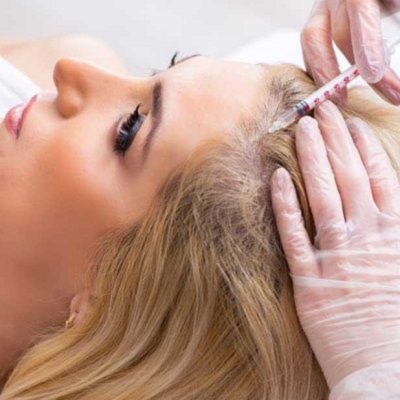GFC therapy is a cutting-edge treatment that harnesses the power of growth factors naturally found in the body to stimulate hair growth. These growth factors, when injected into the scalp, promote the regeneration of hair follicles, leading to thicker, healthier hair.
The Science Behind GFC
GFC contains a concentrated blend of growth factors, including platelet-derived growth factor (PDGF), transforming growth factor-beta (TGF-β), vascular endothelial growth factor (VEGF), and insulin-like growth factor (IGF). These growth factors work synergistically to nourish the hair follicles, improve blood circulation to the scalp, and prolong the hair growth cycle.
Benefits of GFC Therapy
- Promotes Hair Growth: By stimulating dormant hair follicles, GFC therapy triggers the growth of new hair, resulting in increased density and coverage.
- Natural and Safe: As GFC is derived from the patient’s own blood, there is minimal risk of adverse reactions or side effects, making it a safe and effective treatment option.
- Non-Invasive: Unlike surgical hair restoration procedures, GFC therapy is non-invasive and requires no downtime, allowing patients to resume their daily activities immediately.
- Long-lasting Results: With regular sessions, GFC therapy can provide long-lasting results, helping patients maintain a fuller head of hair over time.
The GFC Treatment Process
- Consultation: During the initial consultation, the patient’s medical history and hair loss concerns are assessed, and a customized treatment plan is developed.
- Blood Collection: A small sample of the patient’s blood is collected, typically from the arm, and processed to extract the growth factors.
- GFC Injection: The concentrated GFC solution is then injected into the scalp using a fine needle, targeting areas of hair thinning or baldness.
- Follow-up Sessions: Depending on the severity of the hair loss and individual response to treatment, multiple sessions of GFC therapy may be recommended to achieve optimal results.
Is GFC Therapy Right for You?
GFC therapy is suitable for both men and women experiencing various types of hair loss, including androgenetic alopecia, alopecia areata, and telogen effluvium. However, it may not be suitable for individuals with certain medical conditions or allergies.

